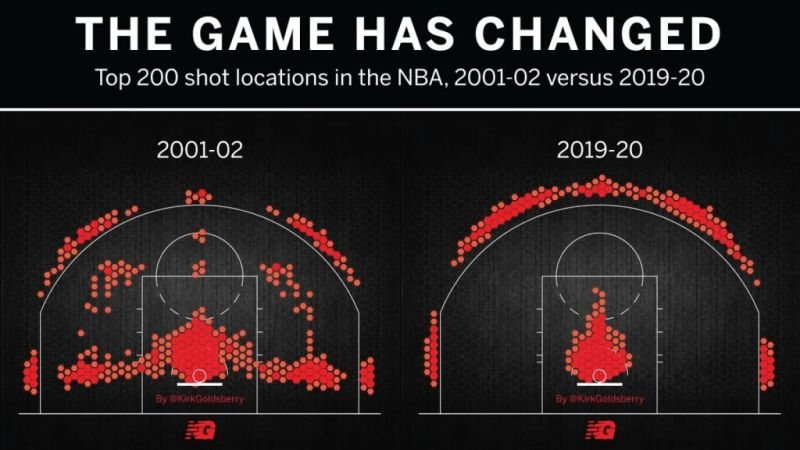Similar to how 3 pointers changed basketball, AI is changing the game of business.
The game of basketball looks strikingly different today than it did just 20 years ago. In particular, Golden State Warriors reinvented basketball with their pace, space and 3-point shooting.
Similarly, companies must now reimagine their playbooks around AI’s transformative potential or risk being left behind.
Leaders, we are facing an inflection point:
1. New Positions Emerge: Like the rise of stretch-4 and positionless players in the NBA, AI is giving rise to entirely new roles and skill sets in business. Data scientists, AI trainers, and AI ethicists are the new MVPs.
2. Insights Drive Strategy and Decisions: NBA teams now rely heavily on advanced stats to inform roster moves, lineups, and in-game tactics. Similarly, AI-powered insights are becoming indispensable for business strategy, from customer segmentation to supply chain optimization.
3. Accelerated Pace of Play: The modern NBA game is faster and more dynamic than ever before. AI is having a similar effect in business, enabling companies to drive efficiency, and innovate at speed.
4. Adapting to Rule Changes: The introduction of the 3-point line dramatically altered basketball strategy. Likewise, the rules of business are being rewritten by AI, from data privacy regulations to changing consumer expectations.
5. Evolving Skill Sets: NBA players today handle the ball, shoot from range, and defend multiple positions. AI is similarly demanding a multidisciplinary skill set from business professionals, blending technical acumen with domain expertise and ethical judgment.
The game of business, like basketball, is undergoing a fundamental transformation driven by AI. To compete in this new landscape, companies must adapt their strategies, talent, and tools to harness the power of intelligent technologies.
The winners will be those who embrace change, experiment relentlessly, and view AI as a catalyst for reimagining what’s possible.
What are your thoughts on organizations adapting to the new rules of business?
Pic credit: Kirk Goldsberry, ESPN

